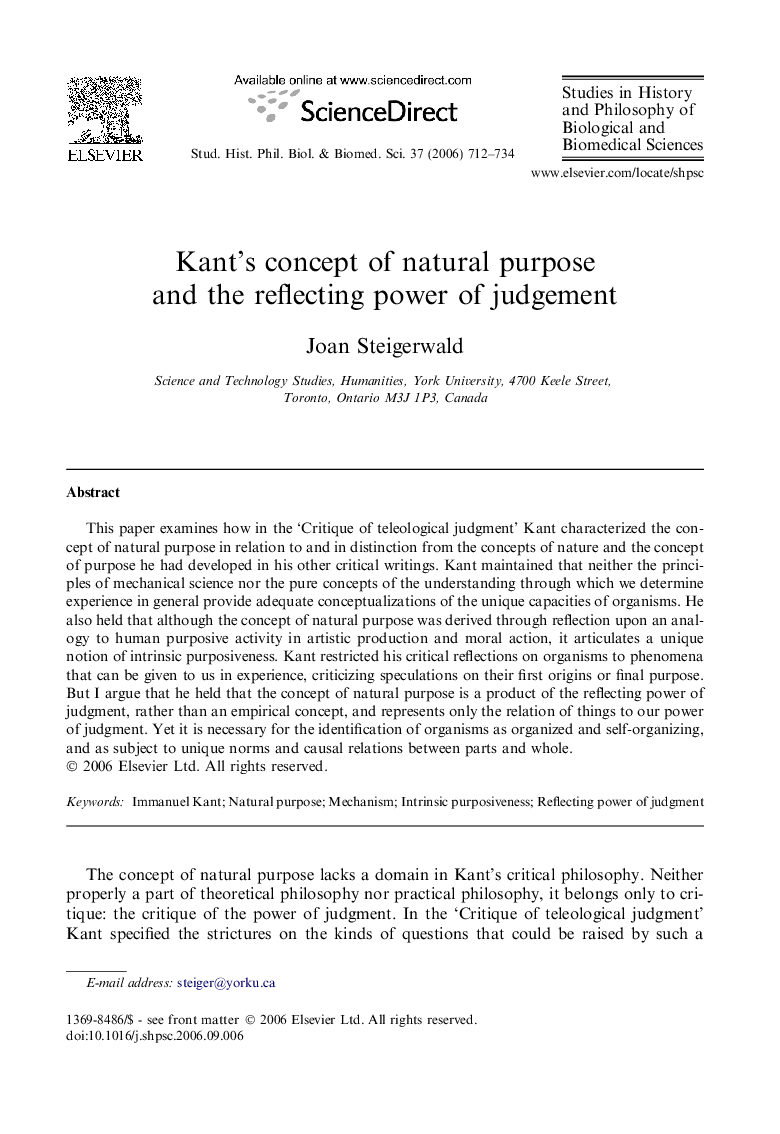| Article ID | Journal | Published Year | Pages | File Type |
|---|---|---|---|---|
| 1161366 | Studies in History and Philosophy of Science Part C: Studies in History and Philosophy of Biological and Biomedical Sciences | 2006 | 23 Pages |
This paper examines how in the ‘Critique of teleological judgment’ Kant characterized the concept of natural purpose in relation to and in distinction from the concepts of nature and the concept of purpose he had developed in his other critical writings. Kant maintained that neither the principles of mechanical science nor the pure concepts of the understanding through which we determine experience in general provide adequate conceptualizations of the unique capacities of organisms. He also held that although the concept of natural purpose was derived through reflection upon an analogy to human purposive activity in artistic production and moral action, it articulates a unique notion of intrinsic purposiveness. Kant restricted his critical reflections on organisms to phenomena that can be given to us in experience, criticizing speculations on their first origins or final purpose. But I argue that he held that the concept of natural purpose is a product of the reflecting power of judgment, rather than an empirical concept, and represents only the relation of things to our power of judgment. Yet it is necessary for the identification of organisms as organized and self-organizing, and as subject to unique norms and causal relations between parts and whole.
